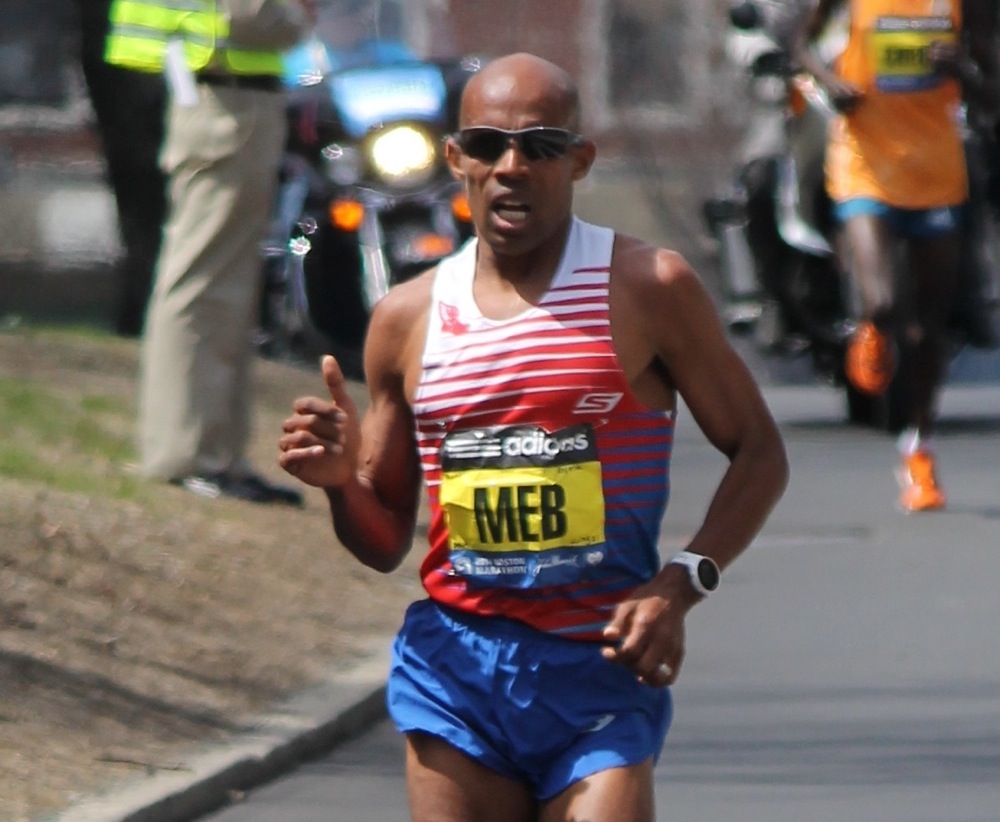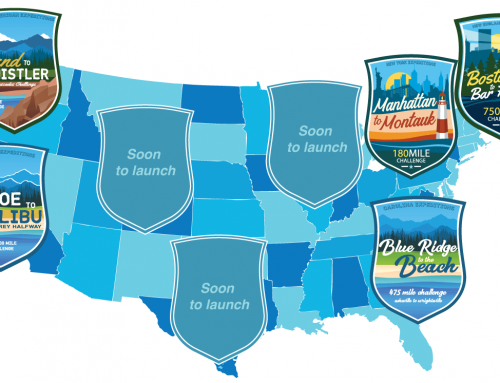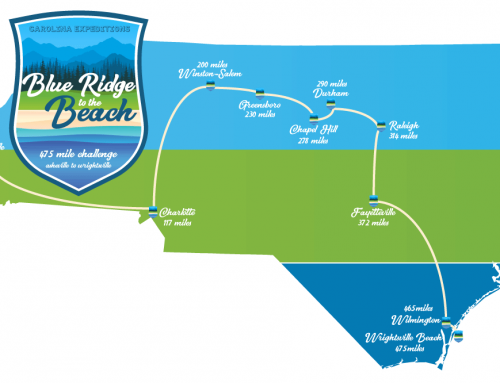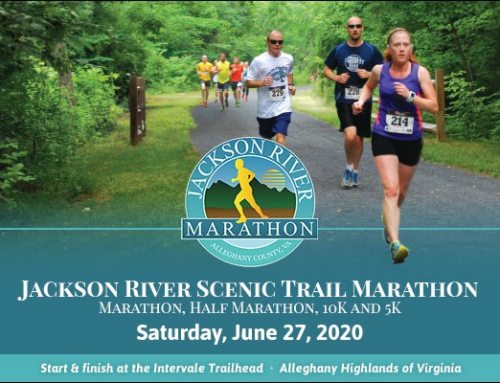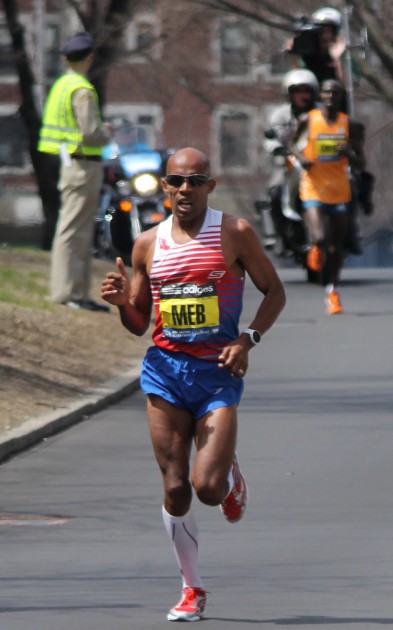
Photo by Tim Kilduff
Their names were written on the corners of his racing bib. Martin. Sean. Krystle. Lingzi. The memory of the four killed last year helped carry Meb Keflezighi to victory in one of the most memorable victories in the 118-year history of the Boston Marathon. Meb raised his arms in victory as he crossed the finish line at 2 hours, 8 minutes, 37 seconds, then looked up to the sky and kissed the ground three times. After taking a bow, Meb put his hands over his face and broke into tears.
Meb came to the United States at the age of 12 after his family, which includes 11 children, left the African nation of Eritrea to escape a life of poverty and a war with Ethiopia. At the time, Meb could not speak English and had never raced a mile. Eventually, his grades and athletic ability earned him a full scholarship to UCLA and he became a U.S. citizen in 1998. Meb ran for the United States in three Olympics, winning a silver medal in 2004. In 2009, he won the New York Marathon, the first American to do so in 27 years. This year, he won Boston.
Endurance Magazine had a chance to talk to Meb about his experience at this year’s Boston Marathon.
What were your expectations going into Boston? Did you have any idea that you might win?
It has been a career goal to win the Boston Marathon. Since I ran it for the first time in 2006, I truly believed I could win this race. With an Olympic medal and NYC Marathon victory, the missing achievement was the Boston Marathon victory.
I was hungry for a victory in Boston before the tragedy of last year. Since that bombing, I was on a mission to win the Boston Marathon more than ever before. I wanted to do my part, and I thank God that everything worked out for me to honor the race, the city and the running community with a victory.
It must have been an emotional race for you. What were you feeling during the week leading up to the race?
I used my motivation, emotion and inspiration to win the race as fuel in my training and on race day. I used all of the emotional energy to do all that I can.
What were you feeling at the start?
Going into the race, my plan was to draft off of the other runners. I initially got to the front and slowed down the pace so it wouldn’t be an unrealistic and unsustainable pace. But then three Ethiopians took the lead and really slowed down the race. At that pace, it would have been impossible for me to run a personal best. A personal best was one of my three goals going into the race (in addition to a victory or podium finish). It is at that point that I took the lead and pushed the pace to keep it an honest pace and separate the field.
What were you feeling when you started to realize you might win?
When the other runners let JB and I go, I couldn’t understand why they would do that. I would never allow a runner of my credentials get away like that. But that mistake created an opportunity for me. Though I had anticipated a final sprint duel to the finish, I was more than happy to secure the victory by maintaining my lead.
What were you feeling when you won?
I was so thankful and honored. I am honored that God chose me to help Boston, the wounded victims, their families and the running community heal. I am so thankful that I wasn’t caught at the finish. I would have been OK if I was caught at the finish, but I am so glad I was able to lead the race from wire to wire.
Did you experience any other emotional moments in the race?
I had written the names of the victims on my bib and I used their energy and the crowd of spectators to push me to the finish.
Outside of winning, what is your favorite part of the Boston Marathon?
I love the history of the Boston Marathon. It is the most prestigious marathon in the world. It has a rich history and tradition, and I am honored to be a part of it.
You’ve inspired a lot of people, not just by winning the Boston Marathon but by winning at the age of 38. What advice do you have for older runners looking to PR?
Consistent training is the key to progress. Listen to your body and take a day off when necessary. That day off may allow you to continue training, whereas pushing your body when it is not ready can lead to an injury and weeks or months away from training. This time off makes PRs unlikely, so do what you can to train consistently and that will lead to a personal best.
What advice do you have for 40-year-old or older people looking to run their first marathon?
In training, it is 90 percent physical and 10 percent mental. In racing, it is 90 percent mental and 10 percent physical. On race day, run a negative split, meaning run your second half of the marathon faster than the first half. You can only do that if you run a controlled effort in the first 21k.
You accomplished a lot in your life through running, which has also helped you develop a positive and healthy lifestyle. What would you say to inspire school-age children and their parents to lead healthier lives?
I believe in balance. To me, “Meb” stands for “Maintaining Excellent Balance.” It is important for kids, and adults, to remember that we can’t be full-time athletes, students or employees. By living a healthy and active lifestyle, that will help us be a better person and student, athlete or employee.


